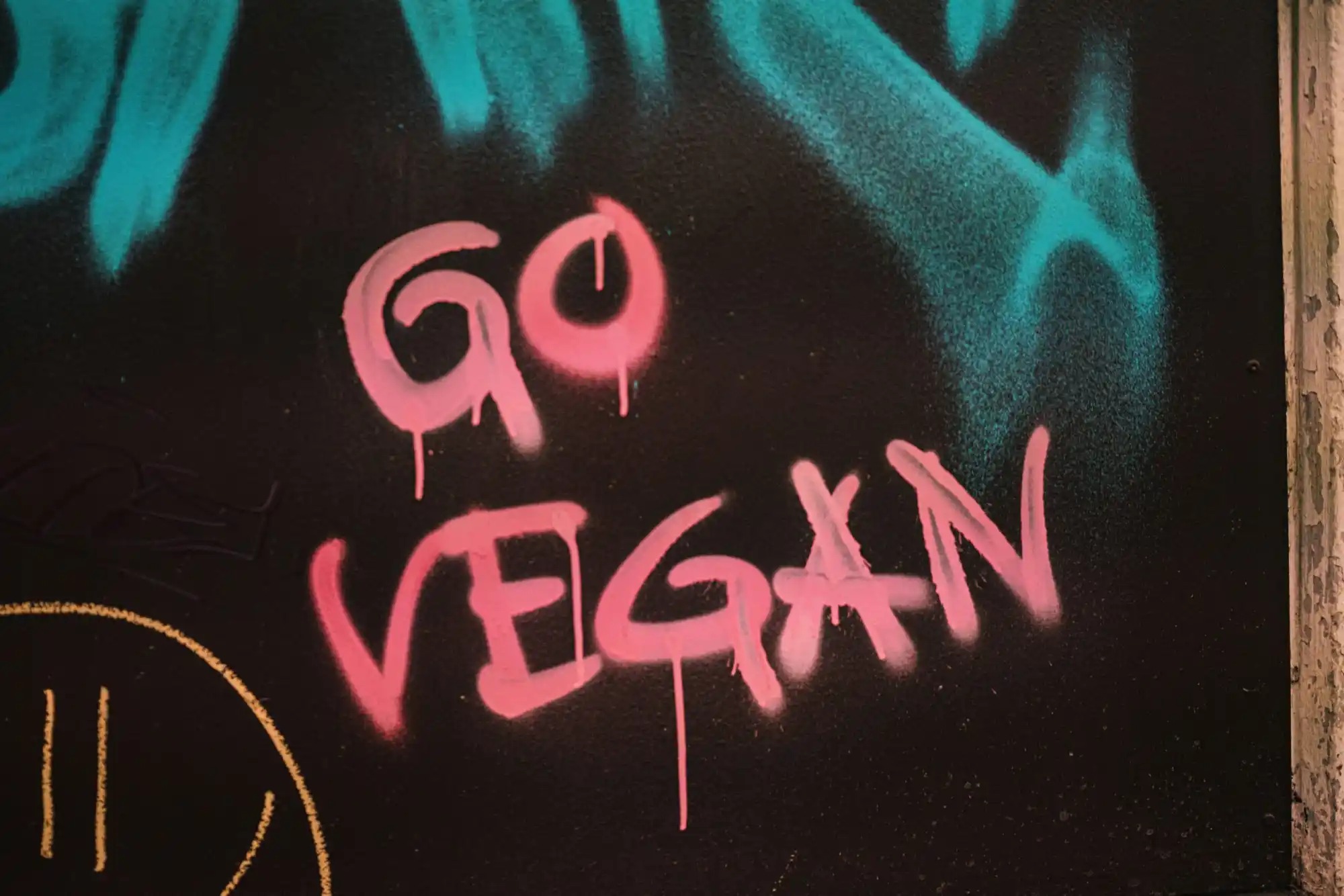
Veganism is not a new concept as many civilizations have practiced it. In fact, in some civilizations and spiritual practices, people abstain from meat in order to increase their ability to connect with their deity.
In Scripture, Paul tells Timothy that in the last days there will be a demonic doctrine that will force us to stay away from certain foods (1 Timothy 4:1-3). We also know that at the end, when Jesus comes and establishes His kingdom on this earth, the relationship between predator and prey is going to be removed from the animal kingdom (Is. 11:6-9).
So is Veganism demonic or is it something that brings you closer to God’s original, pre-fall dietary design for us?
Truths About Veganism
1. People Follow it As a Diet
While there’s nothing wrong with abstaining from meat, the Bible doesn’t tell us to eat or abstain from meat. We see that Daniel, in a certain point in his life and for a limited time, went on a “vegetarian” diet, eating only vegetables, drinking water, and avoiding the food and wine provided by the king. But the issue there wasn’t for health reasons; it was for his devotion to God.
It wasn’t because meat was deemed bad or because he was trying to save the environment, was concerned about how animals were treated, or had health problems or wanted to lose weight.
2. Veganism Can Lead to a Disorder
Another important thing to understand is that Veganism can sometimes lead to a disorder or be a sign of one. The psychology of compulsive good eating, known as orthorexia nervosa, is an obsessive and pathological attitude toward healthy nutrition. This obsessive pursuit of a pure and clean diet can produce feelings of fear when the diet is broken. Controlling food can validate existence and often connects identity to diet.
Dr. Steven Bratman coined this term in 1996 after noticing a patient’s obsessive questions about what foods to cut out (National Eating Disorders Association, n.d.). Orthorexia can lead to undernourishment, ruin relationships, cause isolation, anxiety, crippling guilt, and time-consuming rituals. People with orthorexia are often misdiagnosed with anorexia. Bratman points out that if control over food makes you happy, it’s filling a space that longs for love with mere stuff (National Eating Disorders Association, n.d.). Ethical orthorexia focuses excessively on eating and living ethically and sustainably, causing guilt for taking up resources.
Orthorexia can lead to isolation, anxiety, and many bad outcomes. Studies show that 58% of vegans and 24% of vegetarians are at risk of orthorexia (National Eating Disorders Association, n.d.). Vegans are also more likely to suffer from depression and anxiety than meat-eaters.
3. Veganism Can Be a Demonic Cult
Also, it’s important to note that while following the Vegan diet alone is not demonic, there is a demonic component to Veganism. Often, this can promise spiritual advancement, heightened spiritual awareness, worship of nature, and devalue human life to that of animals.
There is also a movement within Veganism that resembles a cult called the Vegan Brigade, offering friendship and belonging as long as rules are followed and not questioned. This sort of behavior is warned against in behavior (1 Timothy 4:1-3).
4. Veganism is Different In Many Ways Than Vegetarianism
Another important thing to note is that there are many reasons why people become vegans or vegetarians. Usually, the number one reason is for health reasons. Studies have shown that there is a lower risk of heart disease, high blood pressure, diabetes, and certain cancers in people who cut back on meat or who are vegetarians. However, there are differences between vegetarianism and Veganism. Ascribing to a vegetarian diet excludes meat and fish but can include dairy and eggs while Veganism is stricter, excluding all animal products and avoiding animal-derived products like leather.
Another reason people embrace Veganism is the belief that it reduces carbon footprint and resource use compared to meat production.
What Does the Bible Say About Meat?
The Bible teaches us to be stewards of God’s creation but not to worship nature. Animals do not have the fundamental right to life that humans do, but they should be protected from needless suffering.
We see in Genesis 1:29 that God’s original intent was for humans to eat what comes from the ground. After the flood, God gave humanity permission to eat meat (Genesis 9:2-3) and never revoked it. The Old Testament law commanded the nation of Israel not to eat certain foods but never prohibited meat entirely. in fact, we see that God Himself provided animal meat to the Israelites in the wilderness (Exodus 16) and commanded animal sacrifices.
Jesus was not a vegetarian; He ate meat and fish. He declared all foods clean and ate broiled fish after His resurrection. In Acts, we also see that Peter was given a vision of animals and commanded to kill and eat, signifying the removal of dietary restrictions and the acceptance of Gentiles (Acts 10:9-16).
Paul tells us not to force our convictions about food on others or judge them for what they eat or don’t eat (Romans 14). The kingdom of God is not about eating and drinking but righteousness, peace, and joy in the Holy Spirit.
As Christians, How Should We Approach This Issue?
As believers we must be careful about what we follow and truly understand the implications. If Veganism involves worshiping nature, demonizing eating meat, and advocating for the diet as a superior spiritual way, it is demonic.
There’s nothing wrong with abstaining from meat, but embracing Veganism for these reasons is deception and the doctrine of demons.
References
National Eating Disorders Association. (n.d.). Orthorexia [PDF]. Retrieved from https://www.nationaleatingdisorders.org/sites/default/files/ResourceHandouts/Orthorexia.pdf
Watch: Freedom From Demons